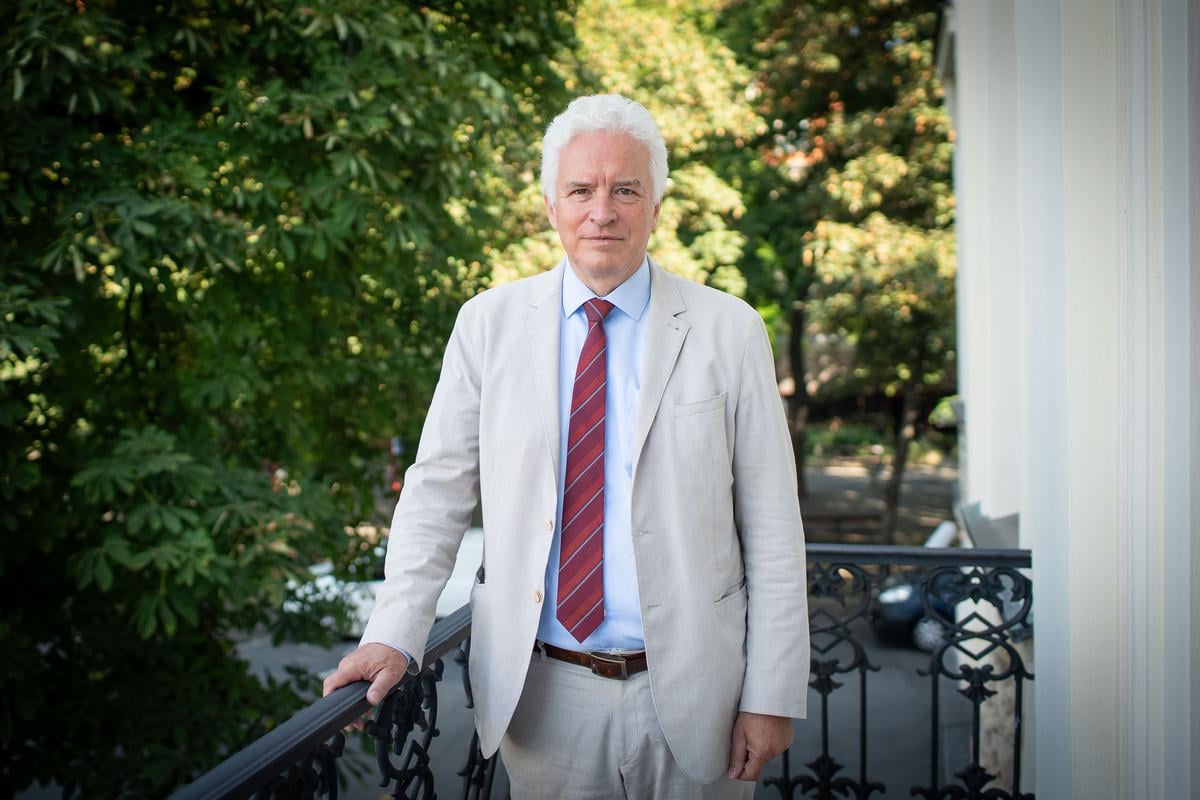Germany remains Slovakia’s most important economic partner, but the relationship is under pressure as costs rise and investor confidence dips. While Ambassador Thomas Kurz, who spoke to The Slovak Spectator in early July, acknowledges growing concerns – especially around corporate taxes and workforce shortages – he emphasises resilience over retreat:
“None of the companies ... are considering leaving the country,” he tells The Slovak Spectator, referring to German investors.
On the political front, Kurz does not shy away from discussing recent tensions, including inflammatory rhetoric and uneasy dynamics within the EU. Yet he is measured in his assessment, calling these issues “a domestic matter” in Slovakia more than a bilateral crisis. Still, he warns against misperceptions abroad: “There is a danger ... because not everyone is a specialist in Slovak domestic politics.” His message is clear – bridges can still be built, but words matter, and Germany is watching.
Germany is one of Europe’s central trade players – but with risks like US tariffs, supply chain shocks, and geopolitical instability looming, how is Berlin preparing?
This is one of the broadest questions you could ask. I would say that all our domestic and foreign policies are at least being influenced – if not entirely dominated – by these aspects. Everything we do regarding economic or security policy must take into account what is happening in Europe, particularly within the EU, as well as the threats emerging from the East and, increasingly, from the West – across the Atlantic.
The questions and challenges you mention are affecting every aspect of our policymaking at home, including even the most domestic areas, such as social policy.
This is also a matter of budget: funding that was previously allocated to social policies is now under strain due to these external pressures.
So what is Germany going to do in response to all this?
We’ve had the new government in place since early May, and they have clearly stated their commitment to the defence of Europe – starting with the defence of Ukraine.
But more broadly, this also applies to the wider challenges, including those coming from across the Atlantic. We have made it clear that, for us, Europe is the answer to most of these challenges. We need to strengthen Europe, to keep the EU united – all member states together. This is a major challenge, and we are actively working on it.
Our new chancellor, Friedrich Merz, is especially committed in this regard.
Last year, we also talked about economic ties – but today we find ourselves in a very different world. With President Donald Trump back in the White House, alongside Slovakia’s economic struggles – how do German leaders – political or business – talk about Slovakia now? Have you sensed a shift in tone or concern since last year?
Yes, there has been a shift, if you want to call it that – but not dramatically so. Especially with regard to Slovakia, I believe most of the challenges facing the Slovak economy – from workforce shortages to the rising costs for enterprises – are challenges shared by companies in Germany and elsewhere. So I wouldn’t really consider Slovakia a special case. We’re more or less all in the same boat – and we’ll either succeed together or not at all.
Of course, Slovakia is more dependent on what happens in the German economy than the other way around. But I remain optimistic. Despite the recent negative news from Germany’s economy, there are already signs of a turnaround.
I’m convinced that the German economy will once again find a way out of this crisis. And that would also be good news for Slovakia, as it will benefit from Germany’s recovery.
If you’re asking whether there is a specific challenge for Slovakia, then yes – high costs for enterprises are a key issue. One example is corporate taxation. There’s also the new financial transaction tax, which has made Slovakia less attractive for investment. It’s no longer a low-cost destination but rather an expensive one, especially when compared to neighbouring Hungary.
There is a significant cost gap – particularly for German businesses – which currently seems to outweigh even the more difficult political situation in Hungary. For example, BMW has chosen to invest in Hungary, where it will produce a new electric vehicle, rather than in Slovakia or elsewhere. That decision was driven mainly by the substantially lower costs in Hungary.
Germany is by far Slovakia’s biggest economic partner – but that also means when Berlin sneezes, Bratislava catches a cold. In your conversations with German officials and business leaders, how do they usually view their impact on smaller partner economies like Slovakia? More as a responsibility, a strategic interest, or simply part of the wider EU market?
I believe that, for Germany, the top priority is to maintain the cohesion of the EU – of Europe as a whole. This certainly includes the smaller partners within the Union. However, at the moment, our main concerns are not focused on countries like Slovakia or Slovenia.
If I may, I’d like to quote my former Slovak colleague in Berlin, who has just recently left his post. A few weeks ago, we were sitting together on a panel here, and he was asked by the moderator: How does German business, in general, view investment opportunities in Slovakia?
So the question was directed at the outgoing Slovak ambassador in Berlin. And I quite liked his response, which is why I’m quoting it. He said: “I have met people who are aware that Slovakia exists – very educated people who know that it is an EU member state, of course.”
You understand the point he was making: Slovakia is not always top of mind. It’s not easy. Slovak businesses and representatives in Germany really have to go the extra mile to make themselves seen and heard – especially when it comes to communicating their challenges and attracting German investment. That visibility is not something that can be taken for granted.
As I often say to my Slovak counterparts: we need to work on this together. But the Slovak side must take the lead and go that extra mile.
A recent survey by the German-Slovak Chamber of Commerce shows that the mood among German investors in Slovakia has clearly worsened – concerns about the business environment, its predictability and the tax burden are growing. When you speak with company leaders here, what are you hearing? Are we looking at a short-term dip in confidence – or something more serious?
I wouldn’t place too much importance on that survey – or, to put it another way, I would rather place it in the broader context. Many of the complaints expressed there are quite similar to what we hear from companies in Germany as well.
I think businesses have been dealing with a worsening business environment for some time now – across several countries. The issues being raised in Slovakia are very much the same as those voiced by companies in Germany, the Czech Republic or the Netherlands.
What I believe is more important is this: none of the companies – at least none that I’m aware of – are considering leaving the country. They are facing challenges, yes – some more than others – but no one is talking about disinvesting from Slovakia. No one is planning to pull out.
Of course, some companies are adapting. Just this week, for example, we heard of one German company that is laying off a significant number of employees – you may have read about it. But even in that case, they are not considering leaving the country. They are simply adjusting to current circumstances, which, as we know, can change very quickly.

As you already hinted, higher corporate taxes are one of the main concerns mentioned in the recent German-Slovak Chamber of Commerce survey. From your conversations with German investors – how big an issue is this? Do you sense real hesitation about future investment in Slovakia?


 German Ambassador to Slovakia, Thomas Kurz (source: SME - Jozef Jakubčo)
German Ambassador to Slovakia, Thomas Kurz (source: SME - Jozef Jakubčo)